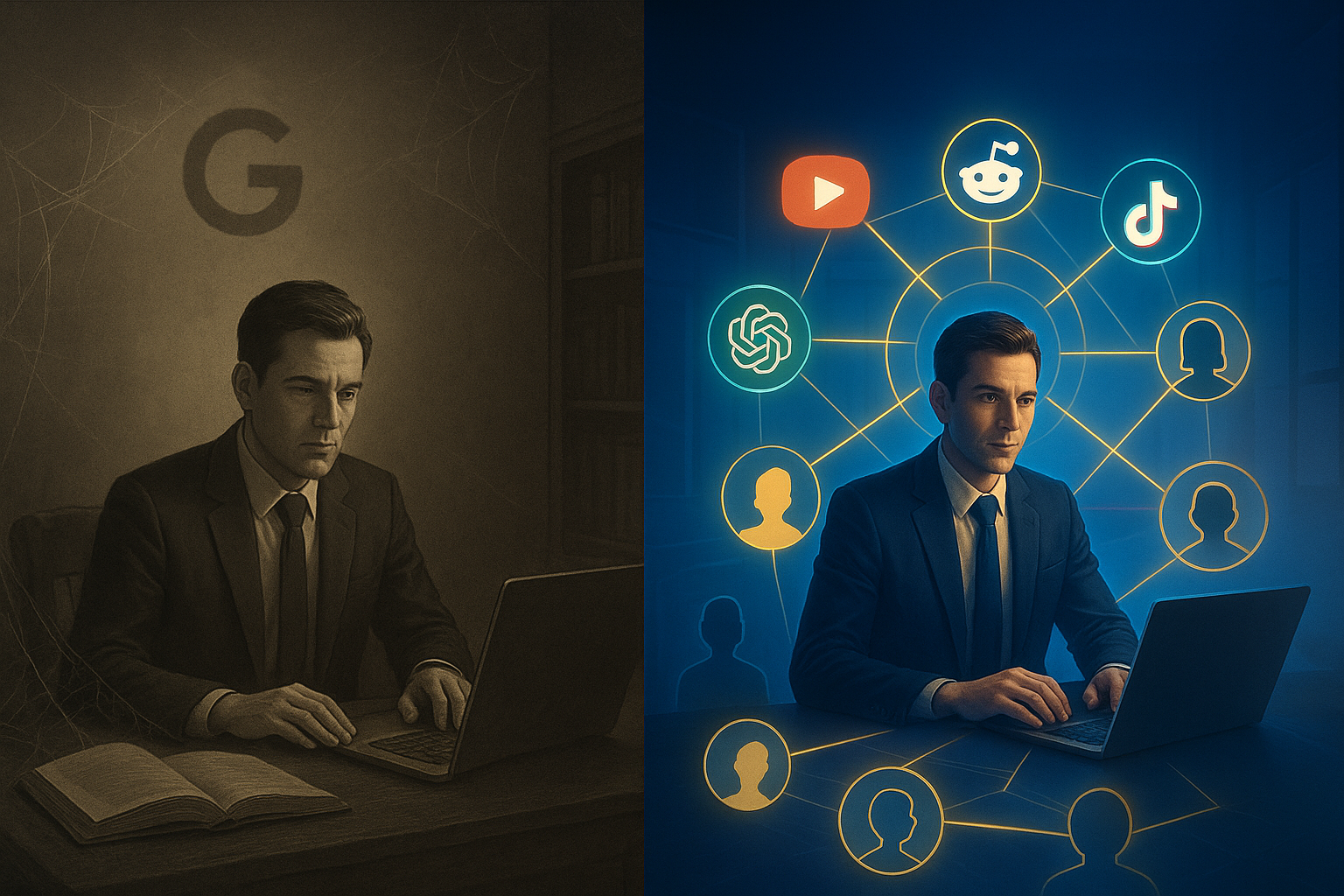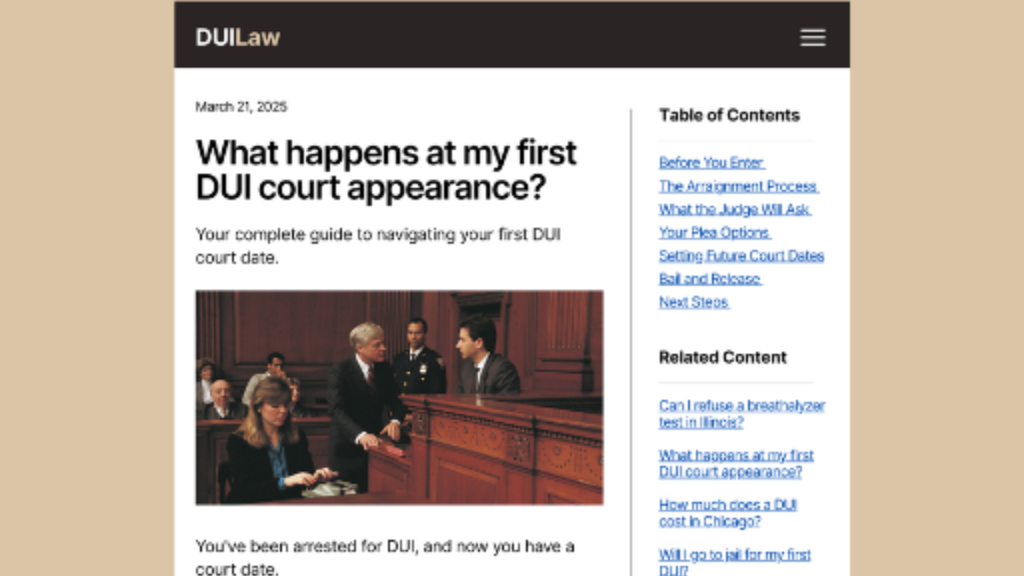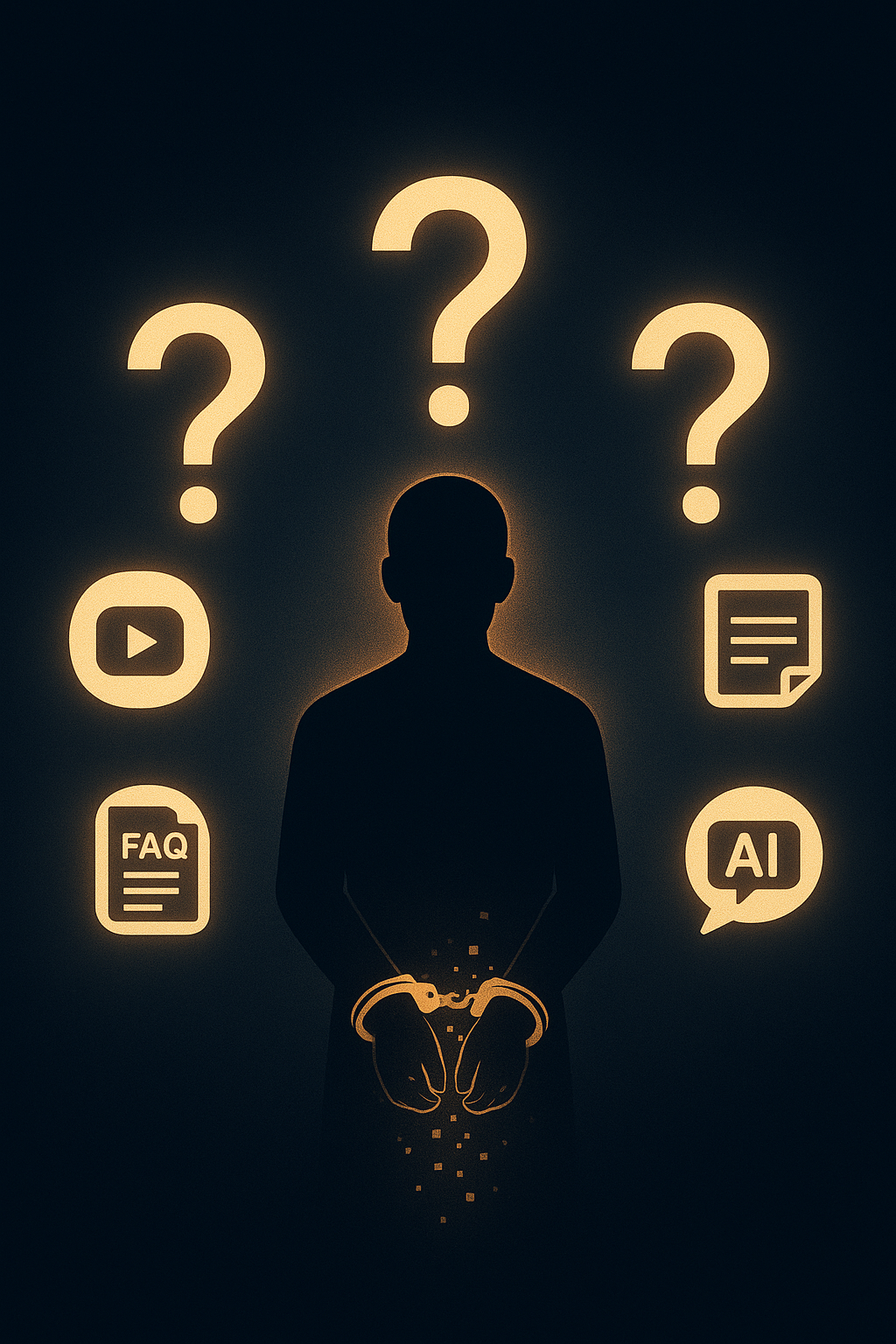Criminal defense SEO has fundamentally changed.
The AI era has transformed how people search for lawyers, what they search, and how firms need to rank. Most defense firms haven't adapted yet. Firms that don't shift risk losing rankings, watching competitors capture their market share, and missing a significant opportunity to expand their client base.
This article covers 10 critical changes in criminal defense SEO, what they mean for your practice, and how to implement them.
These changes will help you capture more qualified leads while your competitors struggle with outdated strategies.
1. From Google-Only to Multi-Platform Presence
Search no longer happens exclusively on Google.
Potential clients now seek legal help through:
- ChatGPT for lawyer recommendations
- Reddit for peer experiences with similar charges
- YouTube for understanding legal processes
- TikTok for quick legal tips
- Specialized legal directories
Missing any platform means missing clients.
Action Required: Create active profiles and content across all major platforms where your clients search.
2. From Broad Keywords to Specific Situations
Generic keywords like "criminal lawyer" have declining value.
High-converting searches now look like:
- "Federal drug conspiracy charges first offense"
- "DUI checkpoint refusal consequences California"
- "Domestic violence charges dropped pretrial diversion"
These longer queries reveal exactly what help someone needs and indicate readiness to hire.
Action Required: Create content addressing 20–50 specific legal situations per practice area.
3. From Generic Information to Experience-Based Content
Basic legal definitions no longer differentiate firms.
Search engines and AI systems now prioritize:
- Anonymized case studies with real outcomes
- Specific defense strategies you've used
- Practical insights from actual practice
- Years of experience and credentials
- Documented success rates
Generic content gets filtered out while authentic expertise ranks higher.
Action Required: Include real case results and specific defense strategies in all content.
4. From Backlinks to Widespread Mentions
Link building alone no longer determines authority.
AI systems evaluate mentions across:
- News articles about your cases
- Reddit discussions mentioning your firm
- Review platforms (Yelp, Google, Avvo)
- Social media conversations
- "Best lawyers in [city]" articles
These mentions build authority regardless of links.
Action Required: Prioritize PR and getting mentioned in relevant discussions and publications.
5. From Ignoring AI to Optimizing for AI Recommendations
AI tools increasingly influence lawyer selection.
Key AI platforms to optimize for:
- ChatGPT and Claude for direct recommendations
- Perplexity for research-based queries
- Google's AI overviews for instant answers
- Bing Chat for alternative search
Users perceive AI recommendations as unbiased, making them highly influential.
Action Required: Structure content with clear headers, bullet points, and quotable sections for AI citation.
6. From Traffic Metrics to Trust Indicators
Website visitor counts matter less than trust signals.
Critical trust indicators include:
- Review quantity (aim for 100+ reviews)
- Average rating (maintain 4.5+ stars)
- User engagement time on site
- Citation frequency from other sites
- Consistent information across platforms
High traffic without trust signals results in declining visibility.
Action Required: Focus on review generation and engagement metrics over raw traffic numbers.
7. From One-Time Optimization to Continuous Activity
Static SEO strategies no longer maintain rankings.
Algorithms now reward:
- Weekly content publication
- Monthly review acquisition
- Regular social media activity
- Consistent directory updates
- Ongoing PR and mentions
Inactive websites gradually lose visibility regardless of initial optimization.
Action Required: Establish weekly content schedules and monthly review campaigns.
8. From Competing with Firms to Competing with AI Answers
Direct AI responses now appear above traditional search results.
To compete with AI summaries:
- Create comprehensive, authoritative guides
- Structure content as definitive resources
- Include unique insights AI can't generate
- Provide specific, citable statistics
- Offer expert quotes and perspectives
Firms must become primary sources that AI systems reference.
Action Required: Create ultimate guides on specific legal topics that AI will cite as authoritative.
9. From Linear Customer Journeys to Multi-Touch Validation
Client acquisition rarely follows a straight path anymore.
Modern client journey includes:
- Discovery on social media
- Validation through reviews
- Research on Reddit/forums
- AI tool consultation
- Website visit for final verification
Inconsistency at any touchpoint eliminates you from consideration.
Action Required: Maintain consistent messaging and professional presence everywhere online.
10. From Manual Processes to AI-Enhanced Operations
AI tools can dramatically increase content production efficiency.
AI can help with:
- Generating location-specific pages
- Creating FAQ sections
- Drafting initial content
- Identifying content gaps
- Monitoring online reputation
- Scaling authority-building efforts
Firms using AI effectively outpace manual competitors.
Action Required: Integrate AI tools for content creation while maintaining human oversight for accuracy and ethics.
Implementation Strategy
These changes represent a fundamental shift in how criminal defense firms attract clients online.
Firms implementing these changes now position themselves to capture market share from slower-adapting competitors.
The digital landscape will continue evolving, but these principles provide a foundation for sustainable online visibility in the AI era.

.webp)

